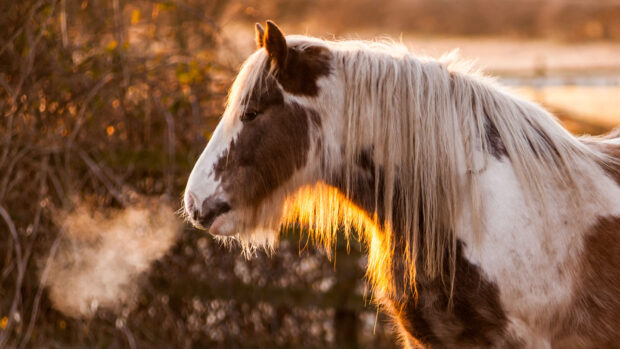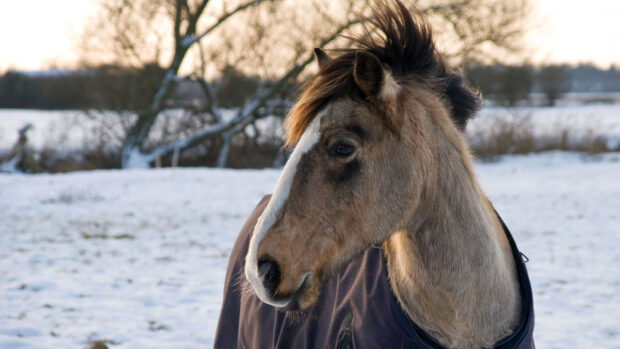Find an equine vet
Read more about winter horsecare issues
We can all relate to the chilly, tingly, numbing feeling of ears, nose, fingers, or toes exposed too long to cold. Horses are not very susceptible to frostbite, but when it happens it can be difficult to treat.
Frostbite occurs when tissues become frozen and ice crystals form inside cell membranes.
Sick, rundown horses or very young foals are at the greatest risk. The most commonly affected areas are the tips of the ears, the end of the penis, the coronet and the heels.
The first sign is that the skin becomes paler and then crusty with hair loss.
Frostbitten tissues don’t recover with thawing: once they’re dead, they’re dead.
Mild cases are easy to manage, but if you suspect your horse may be suffering from frostbite, seek immediate veterinary attention.
To find out more about how your horse might be affected by the cold weather see the current issue of Horse & Hound, 6 January
Looking for an equine vet?
Learn more about winter horsecare



